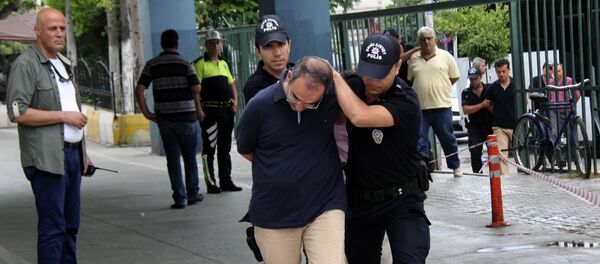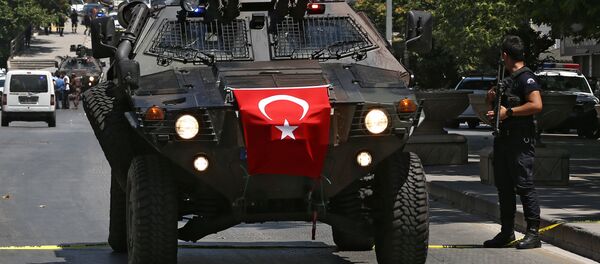On Thursday, the Turkish parliament approved a governmental decree on introduction of state of emergency for three months giving President Recep Tayyip Erdogan the ability to enact new laws by decree, bypassing the nation’s legislature, and restrict public gatherings.
"My wishful thinking is that the government limits the scope of the state of emergency only to bring to justice the real perpetrators of the military coup," Yakis said.
He underlined that the practice of introducing a state of emergency is rather common and has lots of recent examples.
“State of emergency is a widespread practice that is resorted to, for reasons much less risky than a military coup. France announced a state of emergency when a much less important terrorist attack took place in Paris. There are countries in Europe that announce state of emergency even when a natural disaster such as flood takes place,” Yakis said.
"The claim that the coup was staged by the government is not convincing, because it is too risky to take such a challenge," he said.
The coup attempt took place in Turkey on July 15 and was suppressed by the following day. Over 240 people were killed and more than 2,000 injured during the failed coup, according to the country's authorities.
Following Thursday's introduction of the state of emergency in Turkey, Erdogan said it could be extended beyond the initial three months if deemed necessary.




